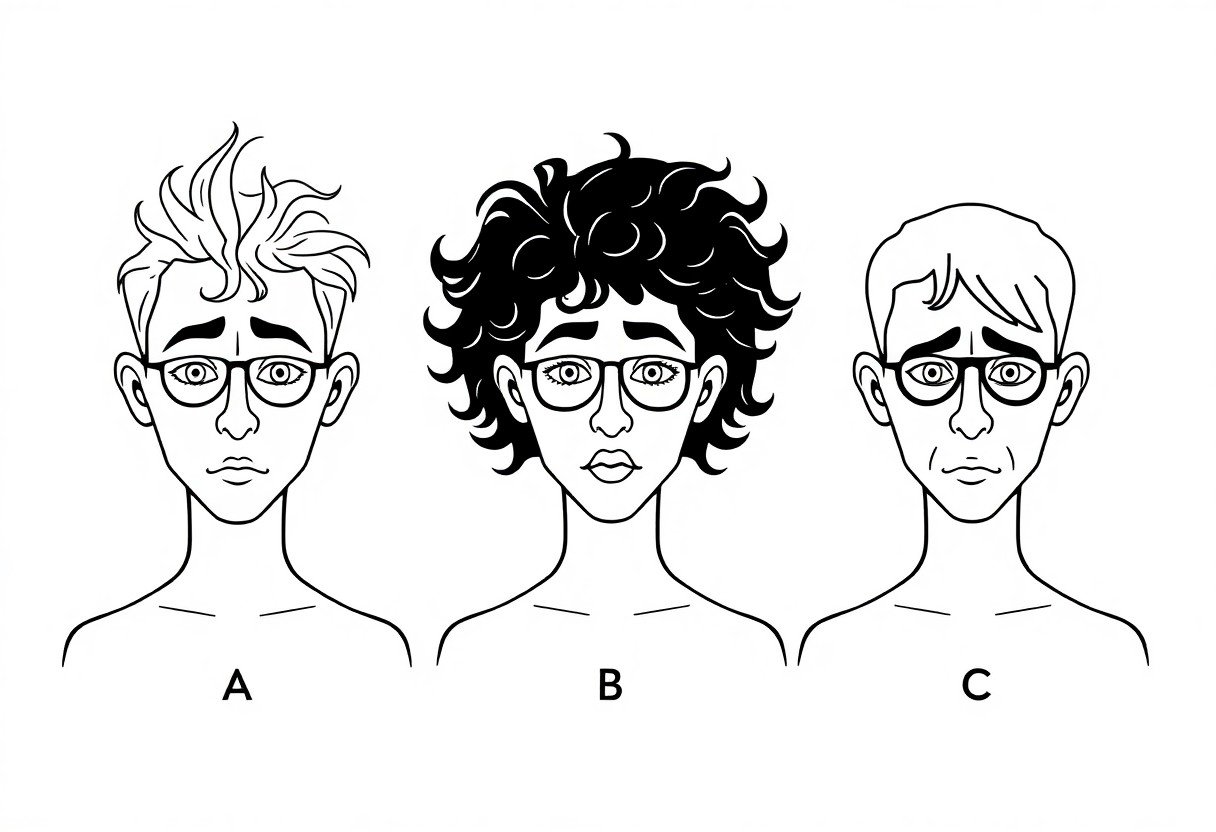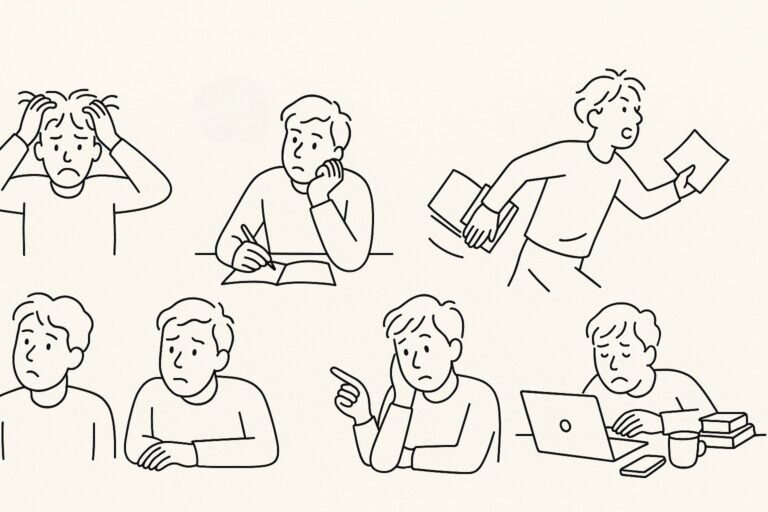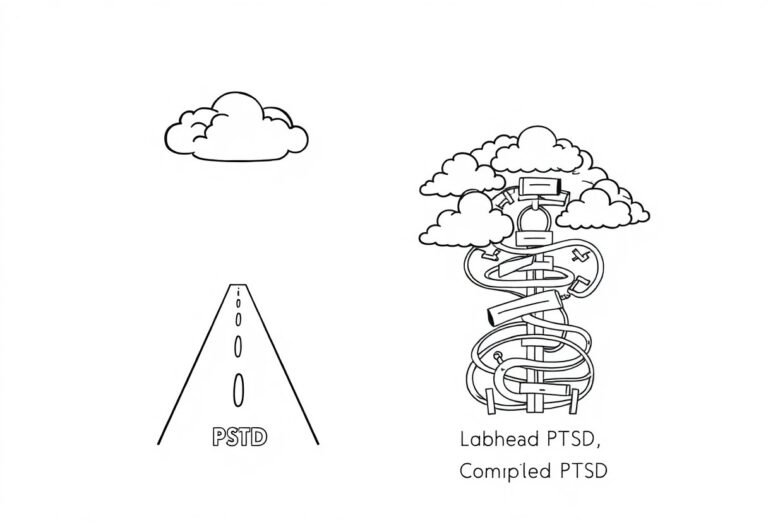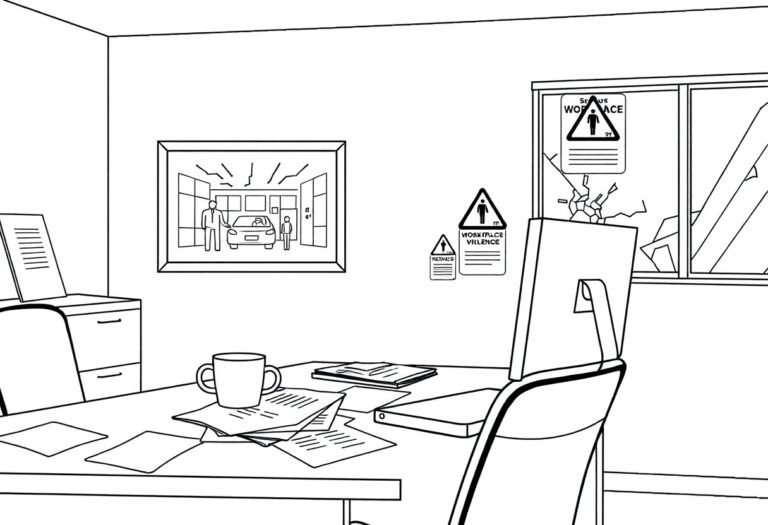Understanding Cluster A, B, and C Personality Disorders
Understanding Cluster ABC personality disorders: Clusters are categories that help you comprehend the different types of personality disorders identified in the Diagnostic and Statistical Manual of Mental Disorders. Cluster A includes disorders characterised by eccentric or odd behaviour, while Cluster B encompasses dramatic, emotional, or erratic behaviours, and Cluster C focuses on anxiety or fear-based disorders. Understanding Cluster ABC personality disorders and these clusters is important for recognising the symptoms that may affect you or those around you, and it can pave the way for seeking appropriate support and treatment.
Key Takeaways:
- Cluster A disorders include Paranoid, Schizoid, and Schizotypal personality disorders, characterised by odd or eccentric behaviours.
- Cluster B disorders encompass Antisocial, Borderline, Histrionic, and Narcissistic personality disorders, marked by dramatic, emotional, or erratic behaviours.
- Cluster C disorders consist of Avoidant, Dependent, and Obsessive-Compulsive personality disorders, typically associated with anxious and fearful behaviours.
- Diagnosis of these disorders often involves comprehensive evaluations, considering behavioural patterns and personal history.
- Treatment modalities may include psychotherapy and medication, tailored to the specific requirements of each disorder and individual’s circumstances.
Overview of Personality Disorders
The term ‘personality disorders’ refers to a range of mental health conditions characterised by enduring patterns of behaviour, cognition, and inner experience that deviate markedly from cultural expectations. These patterns are pervasive and inflexible, typically leading to significant distress or impairment in social, occupational, or other important areas of functioning. Understanding these disorders is vital as they can profoundly affect your quality of life and relationships.
Definition and Characteristics
Definition: Personality disorders are classified into three clusters (A, B, and C) based on their specific traits and symptoms. Individuals with these disorders often exhibit challenges in self-image, emotional regulation, and interpersonal relationships, which can manifest in various ways, such as impulsive behaviour, emotional instability, or odd thinking.
Prevalence and Impact
The prevalence of personality disorders is estimated to be around 9-15% of the population, depending on the specific type and demographic factors. These disorders can significantly impact your life, leading to strained relationships, difficulties in maintaining employment, and an increased risk of co-occurring mental health issues.
Plus, the impact of personality disorders can be profound. They may cause you to experience persistent feelings of loneliness and social alienation. Additionally, the impulsive behaviours associated with certain personality disorders can lead to dangerous situations or legal issues, increasing your vulnerability. On a more positive note, with appropriate treatment, you can develop strategies to manage symptoms and improve your relationships, leading to a more fulfilling life.

Cluster A Personality Disorders
Assuming you are seeking to understand the complexities of Cluster A personality disorders, it is imperative to recognise that eccentric, odd, or peculiar behaviours characterise these conditions. Individuals with these disorders often experience social awkwardness and isolation, making it challenging to maintain relationships and navigate social contexts.
Paranoid Personality Disorder
With paranoid personality disorder, you may exhibit a pervasive distrust and suspicion of others, believing that their motives are malevolent. This condition can lead to significant difficulties in forming close relationships, as you may misinterpret social cues and feel constantly threatened by others.
Schizoid Personality Disorder
Among these disorders, schizoid personality disorder manifests as a preference for solitary activities and emotional coldness. You may find joy in being alone and show little interest in forming relationships, often appearing indifferent to social norms and expectations.
In fact, people with schizoid personality disorder often describe feeling more comfortable in their own company than in the presence of others. This emotional detachment may lead you to engage in solitary hobbies, but it can also cause a lack of fulfilment in personal relationships and social interactions.
Schizotypal Personality Disorder
Schizoid individuals often experience strange beliefs and eccentric behaviours associated with schizotypal personality disorder. You may develop a unique worldview and exhibit patterns of social anxiety, making meaningful connections challenging.
The symptoms of schizotypal personality disorder can manifest as magical thinking, unusual perceptual experiences, and odd speech. These traits can lead to feelings of alienation and discomfort in social situations, ultimately impacting your quality of life and interpersonal relationships. It is imperative to seek support to navigate these challenges effectively.
Cluster B Personality Disorders
Not all personality disorders manifest in the same way; dramatic or erratic behaviours characterise Cluster B personality disorders. These disorders often involve intense emotional responses, impulsiveness, and difficulties in interpersonal relationships. Individuals with these disorders may struggle with self-image and exhibit behaviours that can be harmful to themselves or others, highlighting the need for understanding and proper treatment.
Antisocial Personality Disorder
Before discussing Antisocial Personality Disorder, it is imperative to note that this disorder is often marked by a pervasive pattern of disregard for the rights of others. Individuals may exhibit manipulative, deceitful, and impulsive behaviours, often leading to a lack of remorse for their actions. This disorder can significantly impact relationships and societal functioning.
Borderline Personality Disorder
Disorders like Borderline Personality Disorder (BPD) can lead to emotional instability and intense interpersonal relationships. Individuals often experience rapid mood swings, fear of abandonment, and difficulties in maintaining stable relationships. These emotional fluctuations can result in impulsive behaviours, which may include self-harm or reckless activities.
Further understanding of Borderline Personality Disorder reveals that individuals may often struggle with their identity and self-worth. They may idealise someone one moment and then devalue them the next, resulting in tumultuous relationships. Therapy, particularly Dialectical Behaviour Therapy, can be highly effective in helping individuals manage their emotional responses and improve their relational dynamics.
Histrionic Personality Disorder
Personality traits associated with Histrionic Personality Disorder often involve a constant need for attention and admiration. Individuals may engage in theatrical behaviour, seeking to be the centre of attention in social situations. This can lead to strained relationships, as their dramatic tendencies may be perceived as excessive or manipulative.
Hence, individuals with Histrionic Personality Disorder may often utilise charm and drama to influence those around them. While their need for admiration can suggest confidence, underlying insecurities often drive their behaviours. Therapeutic interventions can help build healthier self-esteem and enhance social interactions, enabling individuals to establish more authentic connections.
Narcissistic Personality Disorder
Borderline characteristics overlap with Narcissistic Personality Disorder, where an individual displays grandiosity, a need for excessive admiration, and a lack of empathy. This disorder often leads to challenges in personal and professional relationships due to the individual’s fixation on themselves, frequently at the expense of others.
A deeper exploration into Narcissistic Personality Disorder indicates that individuals may outwardly project confidence but often internally grapple with significant self-doubt. They may react negatively to criticism and can exploit others for personal gain. Understanding this complexity can help you recognise these traits and encourage a path towards more constructive interpersonal dynamics through professional support.
Cluster C Personality Disorders
Despite their differences, Cluster C personality disorders are characterised by anxiety and fear. Individuals with these disorders often struggle with social situations, showing increased dependency or rigidity in their thinking. This cluster includes Avoidant Personality Disorder, Dependent Personality Disorder, and Obsessive-Compulsive Personality Disorder, each presenting unique challenges and behaviours that affect your daily life and relationships.
Avoidant Personality Disorder
After grappling with feelings of inadequacy and hypersensitivity to criticism, you may find yourself engaging in avoidance behaviours. This can lead to an intense fear of social interactions and a strong desire for acceptance, ultimately resulting in isolation and loneliness.
Dependent Personality Disorder
Below this often emerges a pattern of excessive reliance on others for emotional support, leading to struggles with making decisions independently. This dependency can manifest as fear of abandonment and a deep need for reassurance from those around you.
Hence, developing Dependent Personality Disorder can make you feel trapped in a cycle of needing others to function, causing significant distress. You might even place your own needs aside to maintain relationships, making it difficult to assert your boundaries, which can further entrench feelings of helplessness.
Obsessive-Compulsive Personality Disorder
Individuals with this personality disorder may exhibit an excessive focus on orderliness, perfectionism, and control. This rigidity can disrupt your ability to adapt to new situations, affecting both your personal and professional relationships.
At times, individuals with Obsessive-Compulsive Personality Disorder may become so consumed with details and rules that they miss the bigger picture. This can limit your creativity and increase your stress levels, as you may often prioritise work over leisure or socialising, significantly impacting your life satisfaction and well-being.
Diagnosis and Treatment Approaches
Now, understanding how to accurately diagnose and treat personality disorders within clusters A, B, and C is important for effective management and improved outcomes. These approaches are tailored to your specific needs, encompassing various methodologies that can address the unique challenges presented by each disorder.
Clinical Assessment
To initiate a diagnosis, a thorough clinical assessment is necessary. This process often includes detailed interviews and standardised questionnaires to evaluate your symptoms, behaviour patterns, and overall functioning. Mental health professionals may also consider your medical history and any co-existing conditions during this assessment to create a comprehensive picture.
Therapeutic Interventions
Against a backdrop of diverse needs, therapeutic interventions can vary significantly. They typically include psychotherapy, cognitive behavioural therapy (CBT), and, in some cases, medication. Tailoring these interventions ensures that you receive the support most compatible with your diagnosis and personal circumstances.
Diagnosis plays a vital role in shaping effective therapeutic interventions, enabling you to engage in the most suitable treatment plans. Psychotherapy provides a space for exploring your thoughts and feelings, while medication can help alleviate severe symptoms when appropriate. Additionally, group therapy may offer a supportive community, positively influencing your recovery. Understanding these options allows you to collaborate with your mental health provider to optimise your treatment and work towards a healthier future.
Coping Strategies for Individuals and Families
All individuals and families affected by personality disorders can benefit from developing effective coping strategies. Engaging in open communication, setting clear boundaries, and practising self-care are crucial steps. You may find that seeking professional help, such as therapy or support groups, can provide valuable tools for managing challenges. Additionally, fostering a nurturing environment that promotes understanding and patience can significantly improve relationships and overall well-being.
Support Resources
Between various organisations, you can find a wealth of support resources that cater to individuals and families impacted by personality disorders. National helplines, local mental health services, and online forums offer a platform for sharing experiences and obtaining guidance. You should explore these resources and consider reaching out for additional support tailored to your specific needs.
Check your mental health symptoms on the NHS.
Building Awareness and Understanding
Above all, enhancing awareness and understanding of personality disorders is vital for both individuals and families. Education empowers you to recognise the signs and symptoms, fostering empathy and reducing stigma. This understanding enables informed conversations and provides better support for loved ones navigating these challenges.
Building awareness entails actively seeking information about personality disorders, such as their causes, symptoms, and treatment options. Engaging in conversations with mental health professionals can help demystify the disorders and provide insight into the experiences of those affected. Moreover, participating in community awareness campaigns can help spread knowledge and challenge the stigma often associated with these conditions, promoting a more inclusive and understanding society.
Final Words
Conclusively, understanding Cluster A, B, and C personality disorders enables you to recognise and appreciate the complexities of human behaviour. By familiarising yourself with these categories, you can better empathise with those affected and encourage more effective communication and support. This knowledge enables you to cultivate a more compassionate environment, whether in personal relationships or professional settings, ultimately leading to enhanced interactions and a deeper understanding of diverse personalities.
FAQ
Q: What are Cluster A, B, and C Personality Disorders?
A: Cluster A, B, and C personality disorders are categorised within the Diagnostic and Statistical Manual of Mental Disorders (DSM-5). Cluster A includes paranoid, schizoid, and schizotypal personality disorders, which are characterised by odd or eccentric behaviours. Cluster B encompasses antisocial, borderline, histrionic, and narcissistic personality disorders, marked by dramatic or erratic behaviours. Lastly, Cluster C includes avoidant, dependent, and obsessive-compulsive personality disorders, associated with anxious or fearful behaviours.
Q: How can one identify different personality disorders within these clusters?
A: Identification involves observing patterns of thinking, feeling, and behaving that deviate from societal norms. For Cluster A, individuals might exhibit paranoia or social withdrawal. In Cluster B, one may notice emotional instability, manipulative behaviours, or extreme sensitivity to criticism. Cluster C traits are often observed as social anxiety, excessive reliance on others, or perfectionism. A qualified mental health professional typically conducts assessments to accurately diagnose these disorders.
Q: Are personality disorders treatable, and what methods are typically used?
A: Yes, personality disorders are treatable, though the approach may vary depending on the specific disorder and individual needs. Standard treatment methods include psychotherapy, such as cognitive behavioural therapy (CBT) for emotional regulation, schema therapy for understanding life patterns, or dialectical behaviour therapy (DBT) for borderline personality disorder. In some instances, medication may be prescribed to manage symptoms, such as anxiety or depression, associated with these disorders.
Q: Can personality disorders affect relationships and social interactions?
A: Indeed, personality disorders can significantly impact interpersonal relationships and social interactions. For example, individuals with Cluster A disorders may struggle with trust and social withdrawal, leading to isolation. Those with Cluster B disorders often experience instability in relationships due to emotional volatility or impulsive behaviours. Meanwhile, individuals in Cluster C may avoid social situations or become overly dependent on others, which hinders their ability to develop healthy relationships.
Q: What are the common misconceptions about personality disorders?
A: A common misconception is that personality disorders are not real mental health issues but rather character flaws. Another is the belief that individuals with these disorders cannot change or improve over time. Additionally, people may assume that all individuals with a particular disorder exhibit the same traits, although the severity and expression can vary widely among individuals. Understanding these disorders requires acknowledging their complexities and the need for compassionate support and effective treatment.








